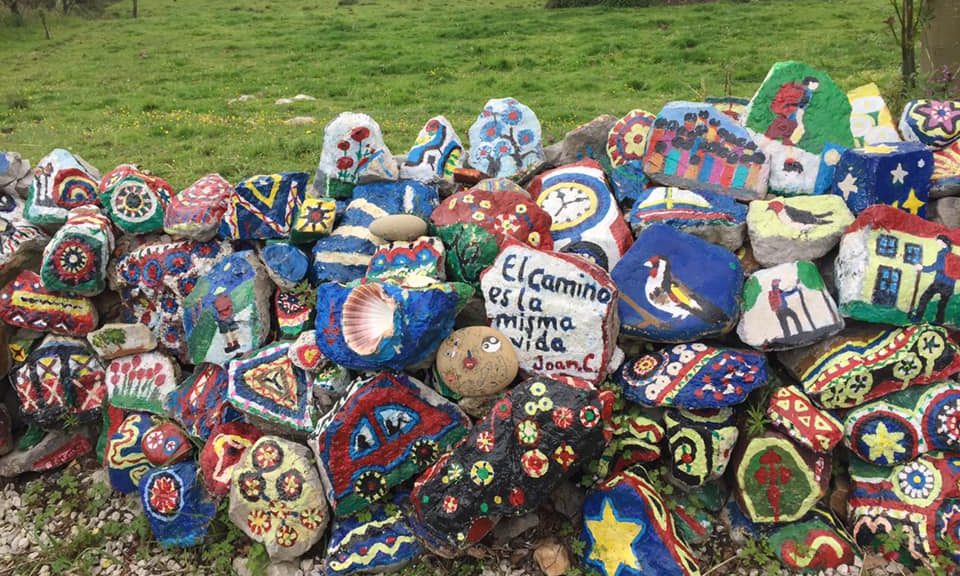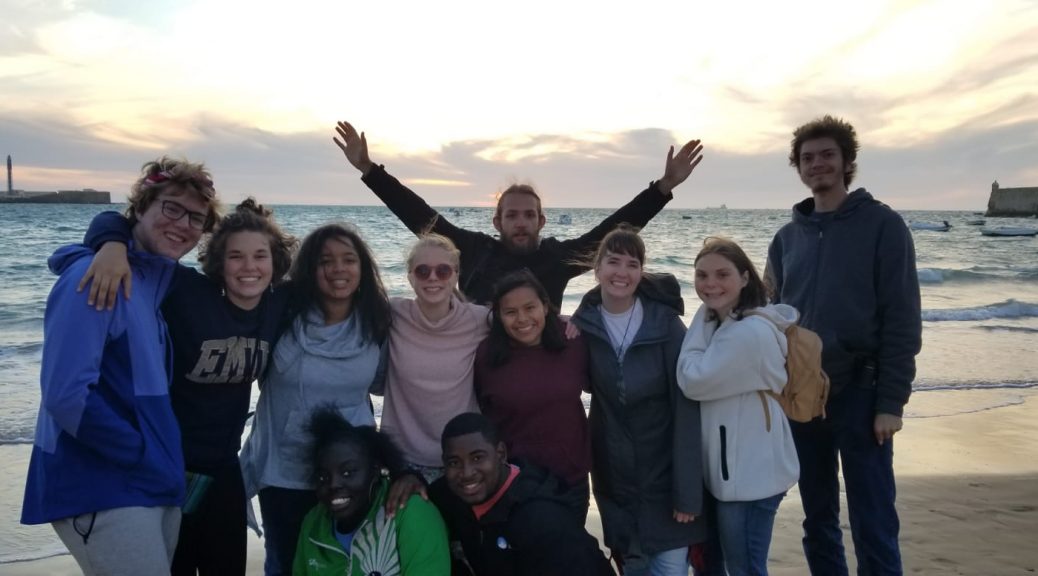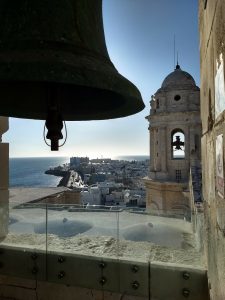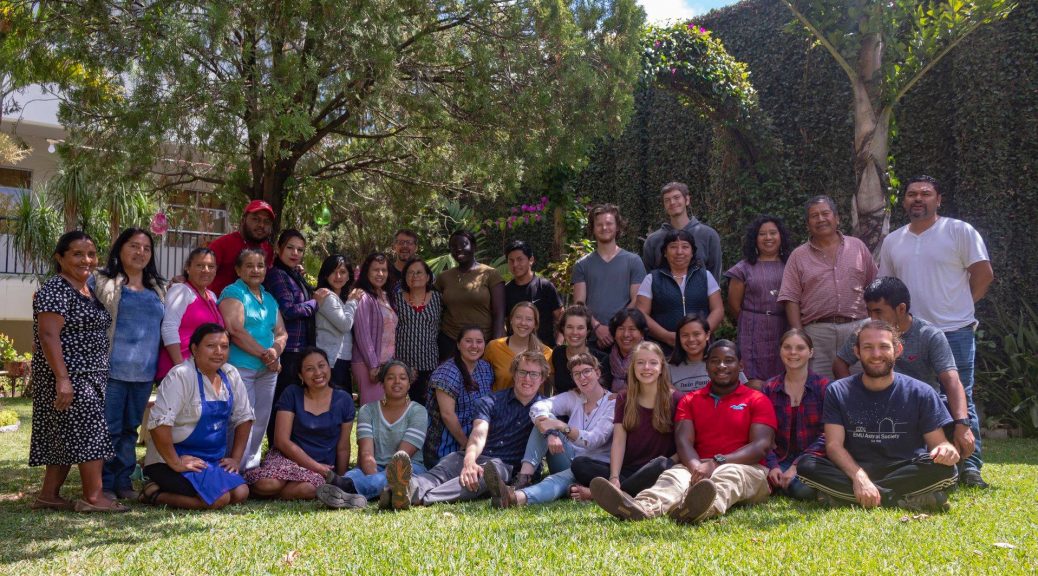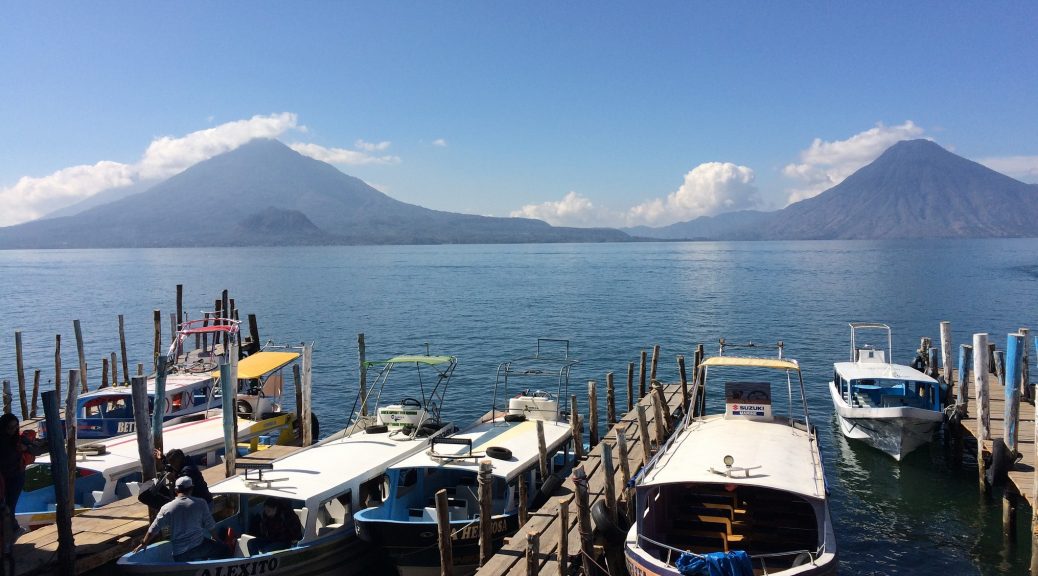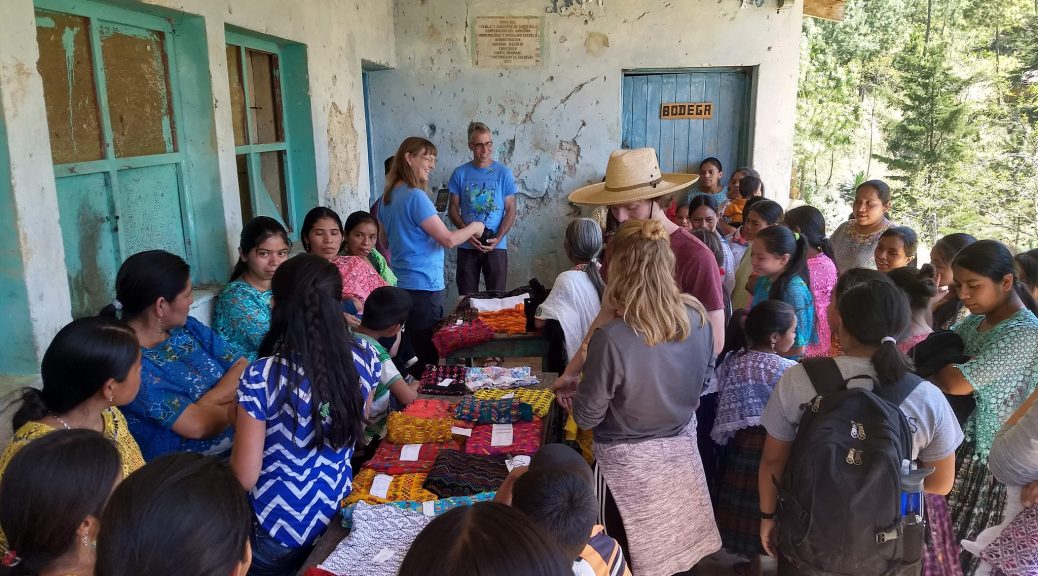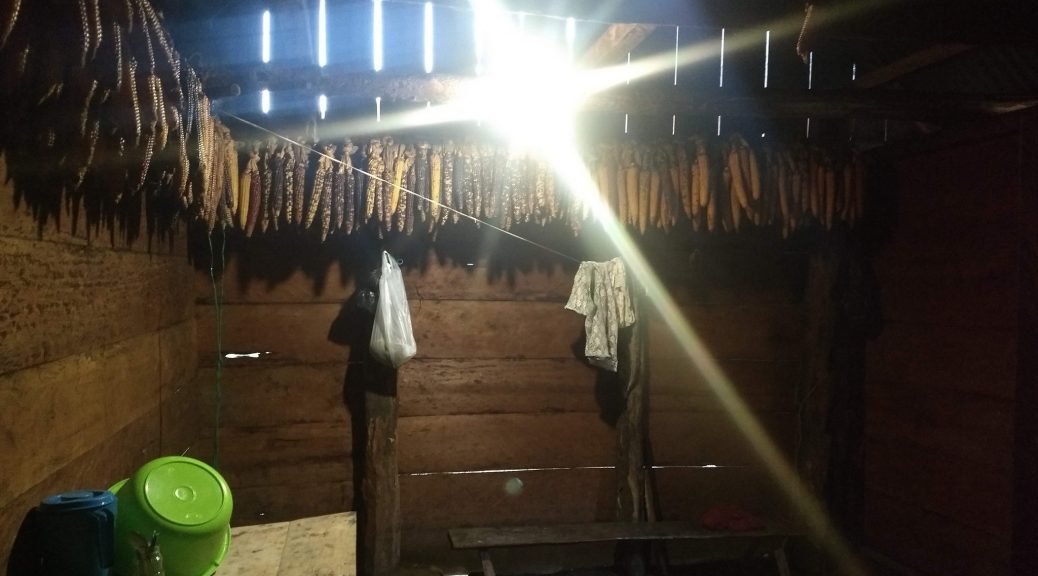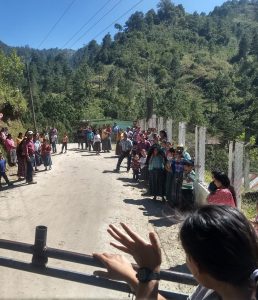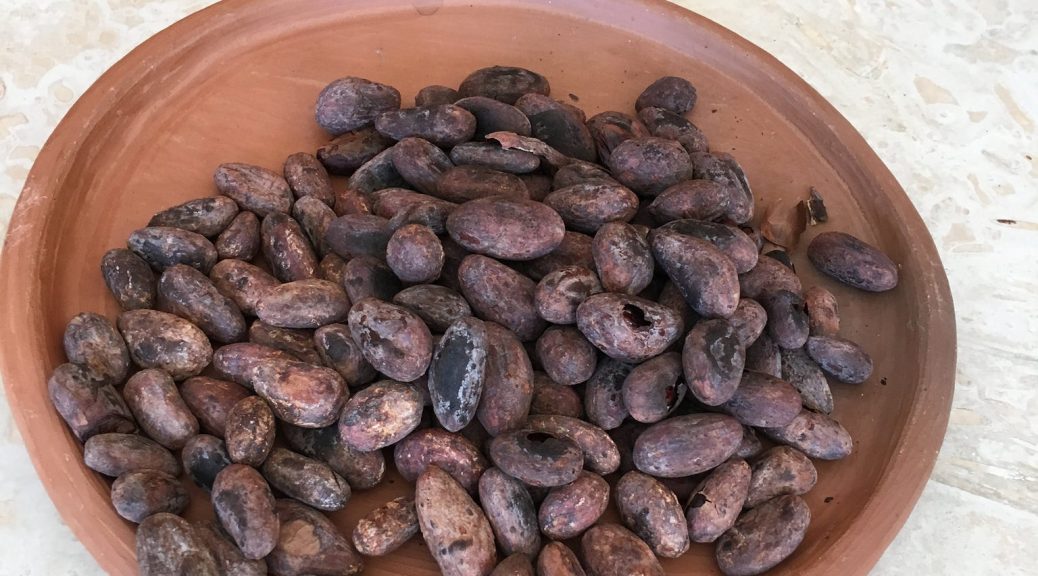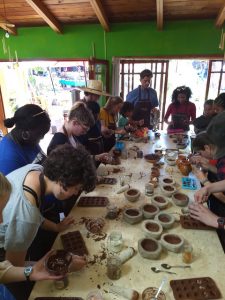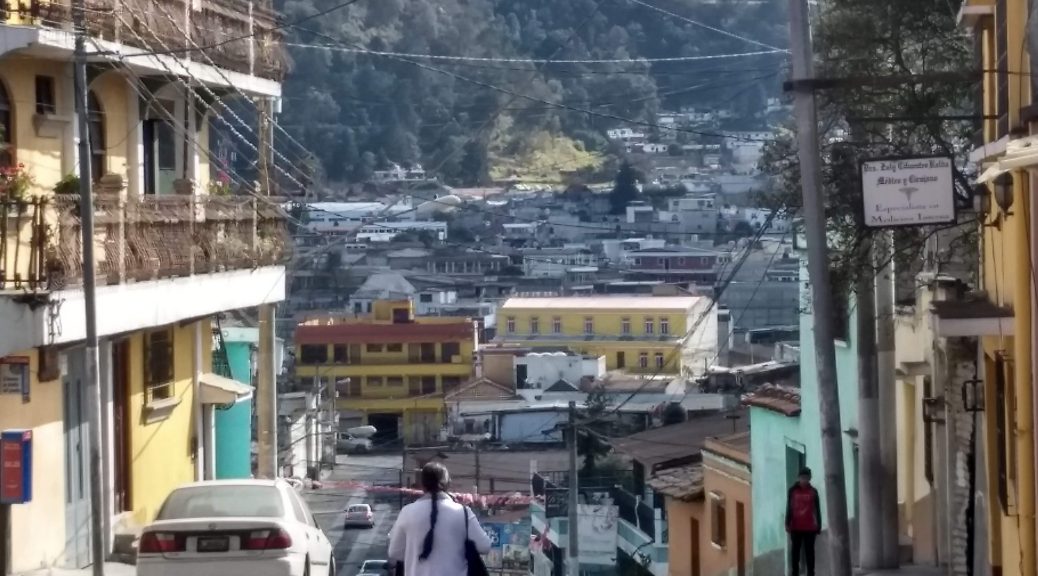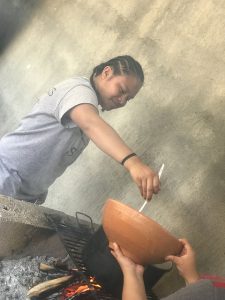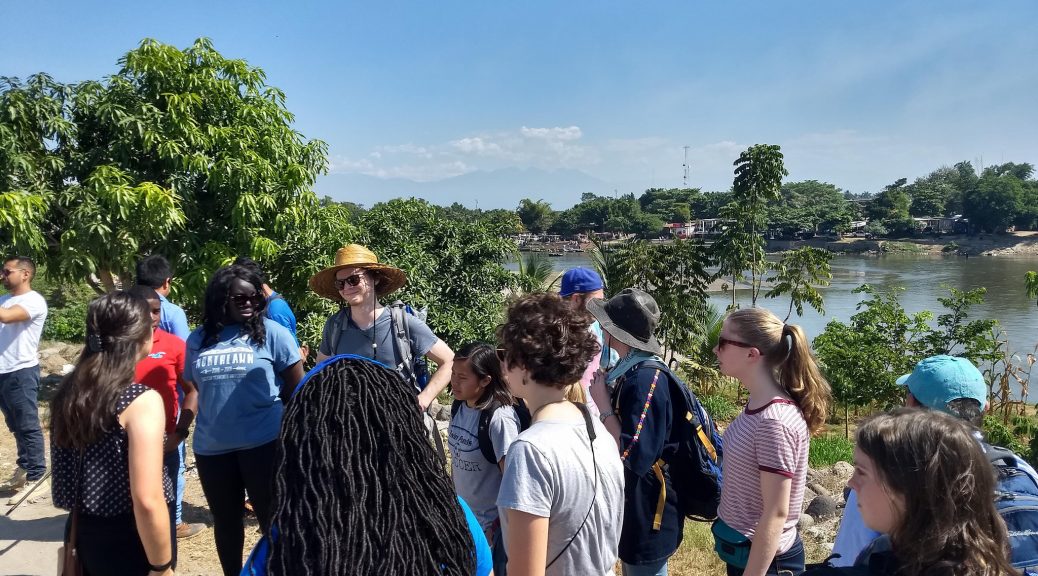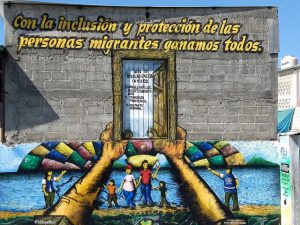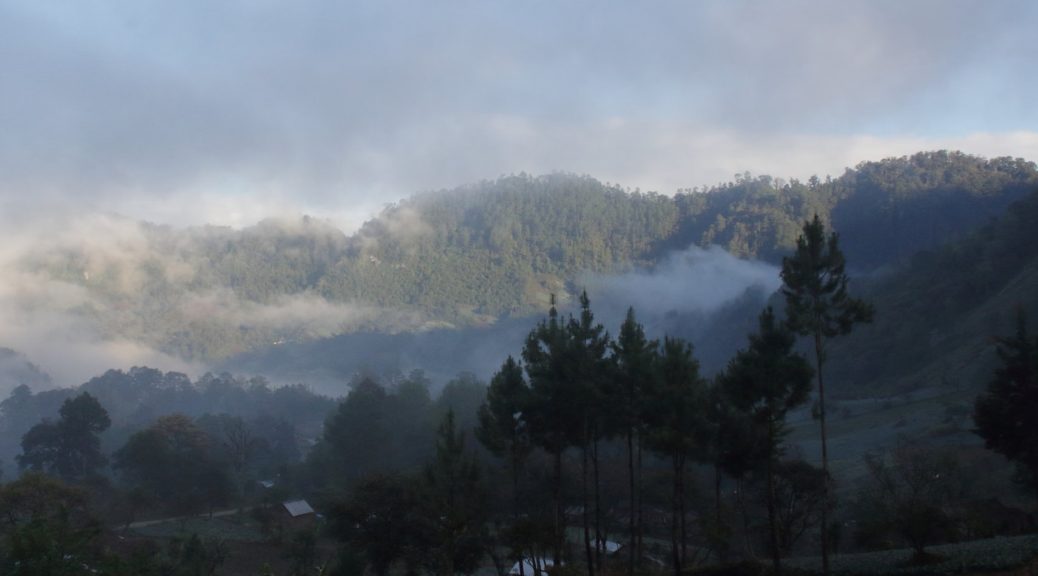Reflections on a day in my life in Guatemala
Every morning I feel a small tug from sleep by my sister at 4 am. Phone flashlight, towels thrown, and makeup to be applied in the light of the hall. When she shuts the door to leave for her long commute, I am left to sleep for 2 more hours…
6:30 alarm sounds accompanied by pit bull puppy growls, dishes being washed outside and Spanish worship songs. My sister yells through the window “¿estás viva?!” She’s surprised every day I didn’t die in my sleep.
Dad is always full of animation to see me in the morning. Even with tired eyes and sleepless nights, he makes a bomb breakfast. My favorites are eggs with una salsa, tortillas, and beans, Nescafé and pan dulce if I’m lucky.
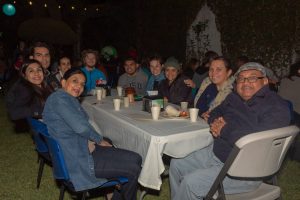 I break conversation or silence to brush my teeth with the door open so my sister can continue to tease her “hermana gringa.” “Con cuidado” says my dad and sister, and I’m off with a prayer/blessing.
I break conversation or silence to brush my teeth with the door open so my sister can continue to tease her “hermana gringa.” “Con cuidado” says my dad and sister, and I’m off with a prayer/blessing.
I walk to Andrew’s house (other EMU student), there is a rhythm to my walk orchestrated by my neighbors. First comes the dogs on the roof who come out to greet or growl. Then comes the older couple walking their dog, then that man wearing too much reflective gear on his bike; it ends with the older man at the corner grinning, “bye bye” he says. No it wasn’t creepy, just eccentric. The sun, the wind. I rap on the door of Andrew and his mother invites me in. I greet the daughters and son in that classy, bohemian, houseplant paradise until Andrew shuffles in with his sandals and massive sombrero: We walk to the bus station and cram into that hot, crowded bus pumping rageton. “Pasaje en mano, dale, dale” says the money collector. He rapidly spews nice sentiments, not wanting to be a bother, tells us we’re all very nice as he pushes more and more people into that bus. I sway in the bus, shifting, move on my tiptoes, ducking as people enter and leave. We jump off the bus, quick to get off before they close the door, quick to get past the back of that bus and the black soot sure to follow.
We arrive at school CASAS. I fill a cold mug with coffee, sit in the sun, switch to shade and greet my friends. I watch my teacher Albertina strut in with her head held high and all the confidence and command of womanhood. I mean that, she has a presence. The gardener and Reina, who makes our lunches, greets us. Alfredo who also works there, but is closer to our age greets us. He’s an incredible painter by the way. I cram in homework I didn’t have the motivation to do the night before and drag myself up to the third floor where our classes are held.
In class we study grammar, intermixing the subject with real conversation, debates and stories about boys, the bus, questions, beliefs. Our class is often rightly accused of laughing, yelling and talking too loud. Albertina is patient with our sass, exaggerated complaints and growing Spanish. She plays music, she tells us to get up and dance and lets us get up at any time to refill our coffee cups. Somehow, I learned more about life and Spanish in that class than in any class before.
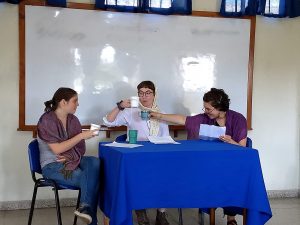
When I finally return home it’s about 5:00. Andrew and I walk the highway talking about faith or lack thereof, silly ideas and relationships. We greet who we pass. The boys sitting outside the mechanical shop giggle and practice their English on us, a mother, her husband and baby have a little snack stand where I regrettably never bought anything. We cross the streets, me running faster than Andrew. We turn corners and walk under the tarp creating a makeshift restaurant with plastic stools on the sidewalk, an open grill, scraps of food shoved to the side. Trash, buses, and motorcycles cover the streets. We wait to cram into the microbús. Smiles, curious looks, and random conversation may start with our fellow passengers. We yell for our stop and we’re finally to our neighborhood. We greet the people outside the local tienda. They recognize us by now and make sure to greet us. I reach my house and rap on the door. Eventually my brother or father comes. They’ll hind behind the door and slowly show their face as if they don’t know me or throw open door with a hug and kiss. We recount our days around coffee or tea and pan dulce. Henry talks extensively about his day in the hospital, Julian is accused of not eating enough and then there’s the joke of needing exercise which only Henry and Lorena partake in. Maybe there’s a telenovela on tv, the news or animal channel until it comes time to eat. I put out the vasos, set the table. “Cuantos personas somos?” asks my sister or mother because I can’t count. Mitz nails me in the side and we accuse each other of being too crazy, singing or dancing badly or talking too loud. After dinner we read a chapter of the Bible. It’s horrendously boring. We are in Leviticus. Everyone fights to keep their eyes open, winking and slapping each other to stay awake. Discussion follows mostly between my dad and brother, my sisters (whom are typically more insightful) may share a bit too.
Bed.
I wish I could share the total richness, push, grime, fullness, belly laughing, warm days, but you’d have to be here for that.
-Maya Dula
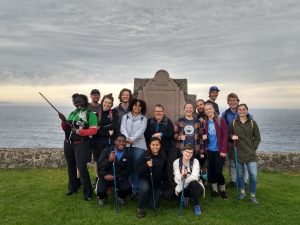 hen the path curves and doesn’t make sense; trust him to put me exactly where he needs me, when he needs me, especially when I think I know better. God’s way is like the Camino de Santiago. It twists and turns, is muddy, has crossroads, and is cluttered with whatever is blocking the way. But the blue and yellow shell signs pointing the way always appear. The mud eventually turns to dirt and to grass, and there is always a path through the obstructions. Following God isn’t always clear, but if we follow the way of Jesus, we’ll find a warm place at our journey’s end.
hen the path curves and doesn’t make sense; trust him to put me exactly where he needs me, when he needs me, especially when I think I know better. God’s way is like the Camino de Santiago. It twists and turns, is muddy, has crossroads, and is cluttered with whatever is blocking the way. But the blue and yellow shell signs pointing the way always appear. The mud eventually turns to dirt and to grass, and there is always a path through the obstructions. Following God isn’t always clear, but if we follow the way of Jesus, we’ll find a warm place at our journey’s end.